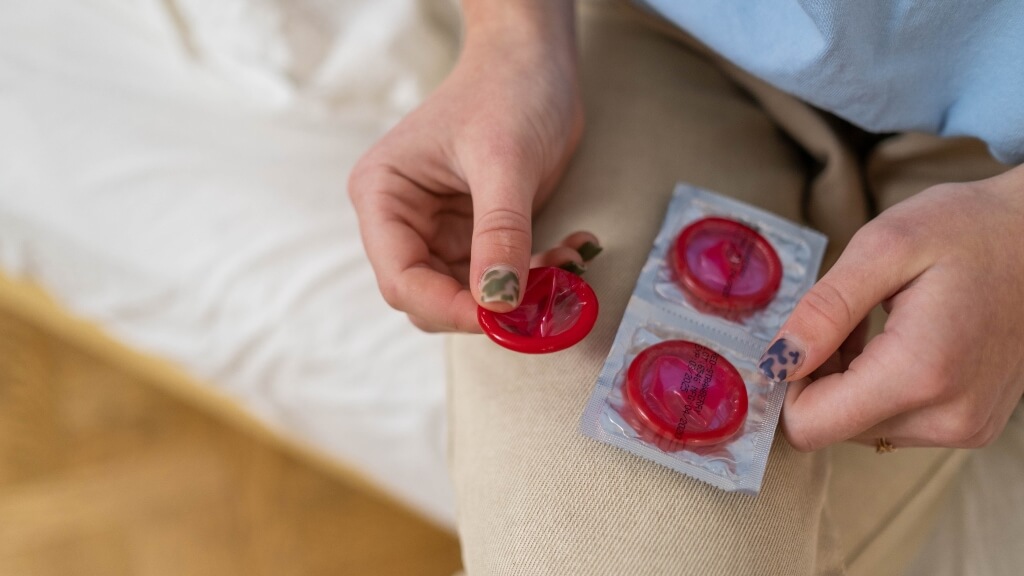University students view sexual health campaigns as bleak and prejudiced
A study by the UOC in partnership with several Chilean universities examines the difficulties university students face regarding sexual health issues, and proposes specific measures to improve campaigns aimed at promoting healthy sexual behaviourThe barriers encountered by university students are a lack of information about sexual health, social stigmas and the difficulties involved in having safe sex

The period between post-adolescence and maturity is when most people engage in highest levels of sexual activity. Sex may not be safe and healthy at that stage in a person's life, which makes it a risk factor for morbidity and mortality due to sexually transmitted diseases or infections. In order to study the difficulties related to sexual issues encountered by young university students, a team of researchers led by the Universitat Oberta de Catalunya (UOC), the Universidad de Santiago de Chile, the Universidad Bernardo O’Higgins and the Universidad del Desarrollo de Chile conducted a study to examine what hampers and what fosters the development of healthy sexual behaviours. "We tried to find out what hinders and what helps promote healthy sexual behaviours among young university students, and propose specific actions to improve promotional campaigns," said Manuel Armayones, lead researcher at the UOC eHealth Center's Behavioural Design Lab, member of the Faculty of Psychology and Education Sciences and lead author of the study.
The study, published as open access in BMC Public Health, uses social research systems and theoretical models of behavioural design to contribute to improving health promotion campaigns in different settings.
Barriers to healthy sexual behaviour
The researchers used group dynamics to identify the aspects that act as barriers or facilitators of safe sex behaviours. The barriers include a lack of information, social stigma and a lack of skills for engaging in safe sexual relations.
In addition, the barriers perceived by young people include the fact that sex education is focused on biological aspects or that awareness and promotion campaigns are based on very bleak content, and contain prejudices and misinformation regarding the use of internal or vaginal condoms. "The participants also identified barriers to obtaining condoms at health centres and a lack of access to preventive screening at university, among other issues," explained Armayones, who has a PhD in Psychology and is an expert in behavioural design at the UOC.
"We believe that what is most important for promoting healthy sexual behaviours is comprehensive sex education, access to sexual and reproductive health services, and social and family support," said Giuliano Duarte, associate professor at the Universidad de Santiago de Chile, and a PhD student in the Behavioural Design Lab. This promotion needs to foster easy access to dispensers of internal and external condoms, and to health centres for testing for various sexually transmitted diseases, including HIV. "Campaigns that include both 'how' and 'what' to do are needed to make sexual behaviours safer, campaigns designed to make it easier for them to be safer," said Duarte.
Significant but insufficient progress at Spanish universities
According to the latest CYD Ranking, an indicator which measures the performance of the Spanish university system, 57% of Spanish universities have implemented sexual and reproductive health services or programmes. Hundreds of universities all over the world have adopted and introduced these sexual health programmes in the last decade. Although these services have made significant progress, there is still room for improvement.
The authors propose strategies such as implementing comprehensive sex education programmes at universities to encourage safe sexual behaviours. This includes creating spaces to discuss issues related to sexuality where accessible and confidential sexual and reproductive health services are always available to students.
The research team concluded the study by pointing out that digital technologies could be a crucial tool for reaching a wider and more diverse audience. As examples, they suggest using mobile applications designed in collaboration with young people and creating specific focus groups on messaging systems, in addition to campaigns combining audiovisual material designed collaboratively by young people for platforms such as TikTok or Instagram.
This UOC research supports Sustainable Development Goals (SDGs) 3, Good Health and Well-being; 4, Quality Education; 5, Gender Equality; and 10, Reduced Inequalities.
Reference article:
Armayones Ruiz M., Pinto E. L., Figueroa O., Robles N., Prehn D. L. , Riquelme F. V. and Anselmi G. D. Barriers and facilitators for safe sex behaviors in students from Universidad de Santiago de Chile (USACH) through the COM-B model. In: BMC Public Health [online]. Vol. 23, no. 1, p. 677. Available at: https://doi.org/10.1186/s12889-023-15489-y
Press contact
Sònia Armengou Casanovas
sarmengouc@uoc.edu
+34 619 413 823
UOC R&I
The UOC's research and innovation (R&I) is helping overcome pressing challenges faced by global societies in the 21st century by studying interactions between technology and human & social sciences with a specific focus on the network society, e-learning and e-health.
Over 500 researchers and more than 50 research groups work in the UOC's seven faculties, its eLearning Research programme and its two research centres: the Internet Interdisciplinary Institute (IN3) and the eHealth Center (eHC).
The university also develops online learning innovations at its eLearning Innovation Center (eLinC), as well as UOC community entrepreneurship and knowledge transfer via the Hubbik platform.
Open knowledge and the goals of the United Nations 2030 Agenda for Sustainable Development serve as strategic pillars for the UOC's teaching, research and innovation. More information: research.uoc.edu.
Experts UOC
Press contact
-
Editorial department
